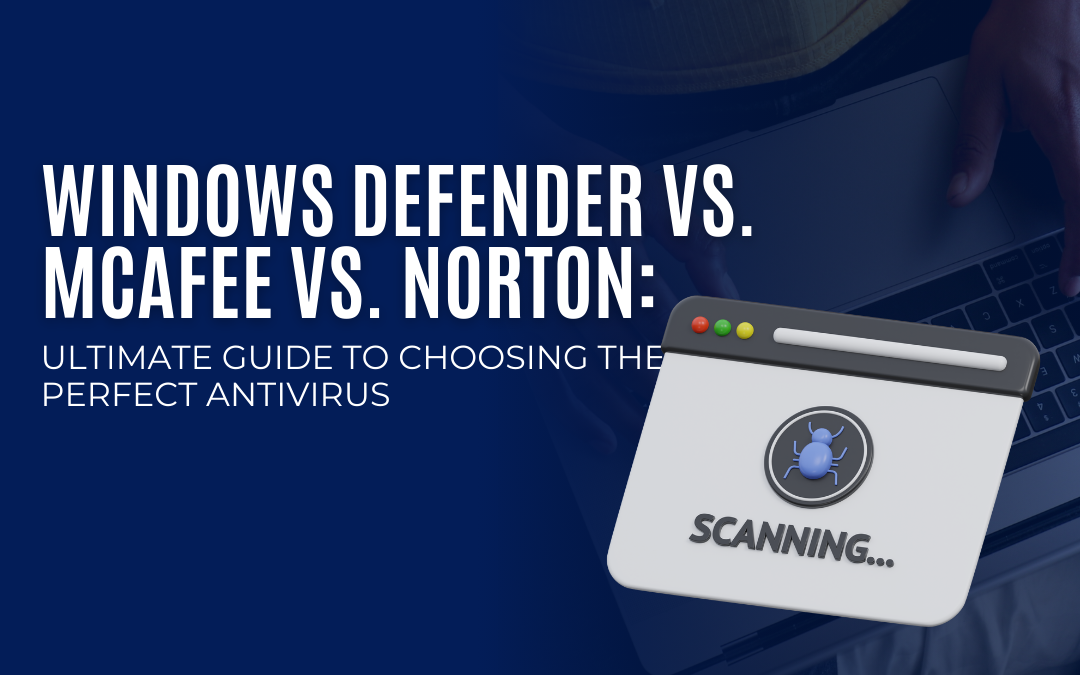Choosing the Right Antivirus for Your Needs
Let me start by stating that Microsoft Defender is usually sufficient for most home users. When it comes to business protection we are exclusively a Cisco shop.
Each antivirus solution has unique benefits tailored for different needs.
Windows Defender, now called Windows Security, is ideal for those who want a free, basic protection that seamlessly integrates with Windows. It includes features like real-time protection, a firewall, and parental controls, with recent updates greatly improving its malware detection.
If you need more advanced features such as VPN services, cloud backups, or more comprehensive parental controls, McAfee and Norton are good choices. McAfee excels in malware detection and offers extras like file encryption and identity theft protection in its premium products. Norton, known for its minimal impact on system performance, provides a full suite of security features including cloud backup, SafeCam, and an easy-to-use interface suitable for both beginners and advanced users.
When deciding, consider your specific security needs, budget, and how much system performance impact you can tolerate. For basic protection, Windows Defender is a great, cost-effective option. For enhanced security and additional features, McAfee or Norton are worth the investment based on your specific requirements.
| Feature | Windows Defender | McAfee | Norton |
|---|---|---|---|
| Overview | Integrated into Windows, no extra cost | Standalone, various protection levels | Range from basic to premium solutions |
| Detection Rates | Comparable to third-party antiviruses | High efficiency, including zero-day attacks | Top scores for traditional and zero-day threats |
| System Impact | Moderate, slowdowns during scans | Moderate to high, better in newer versions | Minimal in recent versions |
| Features | Real-time protection, firewall, parental controls, cloud-based protection | Antivirus, firewall, password manager, file encryption, identity theft protection, VPN | Cloud backup, firewall, password manager, VPN, parental controls, SafeCam |
| User Interface | Simple, integrated within Windows | User-friendly but complex | Intuitive and well-organized |
| Cost Analysis | Free with Windows 8 and later | $30-$40/year for basic, higher for advanced options | Similar pricing to McAfee with tiered options |
More Complexity or More Security?
Adding more software and complexity to a system, particularly in the context of security software like McAfee or Norton, can have both positive and negative implications for security. Here’s a detailed explanation:
Potential Benefits:
- Enhanced Protection:
- Multiple Layers of Defense: Adding another layer of security software can provide additional defenses against different types of threats. For example, one product might excel at detecting malware, while another might be better at blocking phishing attempts.
- Specialized Features: Different security software often comes with unique features. One might offer better firewall protection, while another might provide superior email scanning capabilities.
- Redundancy:
- Backup Security: If one security solution fails to detect a threat, the other might catch it. This redundancy can be beneficial in ensuring that threats are less likely to slip through the cracks.
- Comprehensive Coverage:
- Broader Scope: Different security solutions may use different databases and algorithms to detect threats, potentially leading to a more comprehensive detection capability.
Potential Drawbacks:
- Increased Complexity:
- System Performance: Running multiple security programs simultaneously can consume significant system resources, leading to slower performance and potential system instability.
- Compatibility Issues: Different security programs might conflict with each other, causing crashes or reduced effectiveness. They could also generate false positives, where legitimate software is incorrectly flagged as malicious.
- More Attack Surface:
- Vulnerabilities: Each piece of software added to a system introduces its own potential vulnerabilities. If the security software itself has a flaw, it could be exploited by attackers.
- Configuration Errors: More complex systems are harder to configure correctly. Misconfigurations can lead to security gaps that might not have existed with a simpler setup.
- User Experience:
- Usability: Multiple security alerts from different programs can overwhelm users, leading to alert fatigue where important warnings might be ignored.
- Maintenance: Keeping multiple security solutions updated and properly configured requires more effort and attention, increasing the likelihood of human error.
Conclusion:
While adding another layer of security software like McAfee or Norton can provide additional protection and redundancy, it also introduces complexity and potential new vulnerabilities. The decision to add more security software should be based on a careful assessment of the specific needs of the system, the capabilities of the existing security measures, and the potential impact on system performance and manageability. In many cases, a well-configured, single, comprehensive security solution may be more effective and manageable than multiple overlapping solutions.

